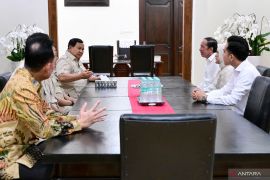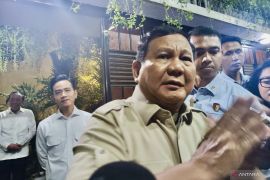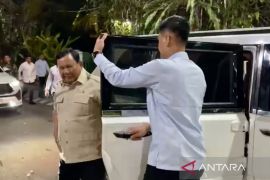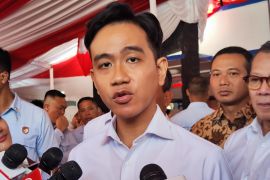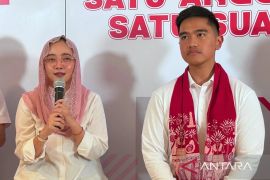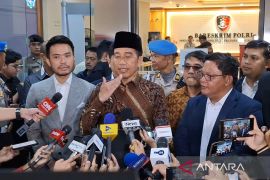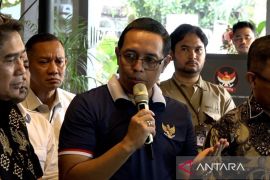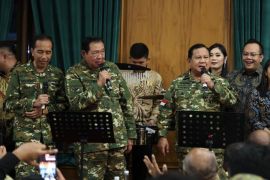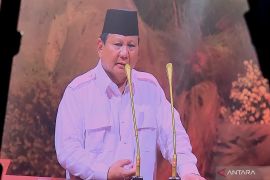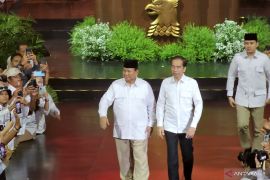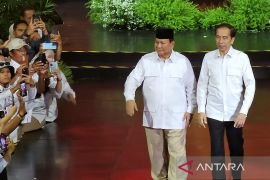The head of state explained that global economic pressure was a challenge being faced by every country in the world, Bey Machmudin, head of the press, media, and information bureau of the presidential secretariat, said in a statement here, Thursday.
Despite the challenge, Indonesia has maintained economic growth of 5.18 percent in the second quarter of 2016, and 5.02 percent in the third quarter.
"Even if we compare it with other major member countries of the G20, we are in third place," Jokowi stated.
In 2017, the economic growth is estimated to reach some 5.1 percent.
"The most important thing is that we maintain the increase, however small," the president added.
Indonesian Ambassador to Iran Octavino Alimudin said the meeting was attended by some 300 people, comprising students and embassy staff.
"We have enjoyed a lot of progress in the bilateral relations between Indonesia and Iran," the ambassador remarked.
During the one-day state visit to Iran, President Jokowi held talks with Iranian leaders to boost cooperation between the two countries in the energy sector.
Iran has one of the worlds largest energy reserves, so diversifying energy cooperation will be very important for Indonesias national energy resilience.
President Jokowi discussed the steps needed to increase cooperation in oil and gas as well as oil field management in Iran and oil refinery investments in Indonesia.
Jokowi and Iranian President Hassan Rouhani witnessed the signing of several memoranda of understanding (MoUs).
These MoUs included one on extradition and another on mutual legal assistance, signed by Foreign Minister Retno Marsudi on behalf of Indonesia; on electricity, signed by Energy Minister Jonan; and on investment, signed by the head of the National Investment Coordinating Board.(*)
Editor: Heru Purwanto
Copyright © ANTARA 2016
